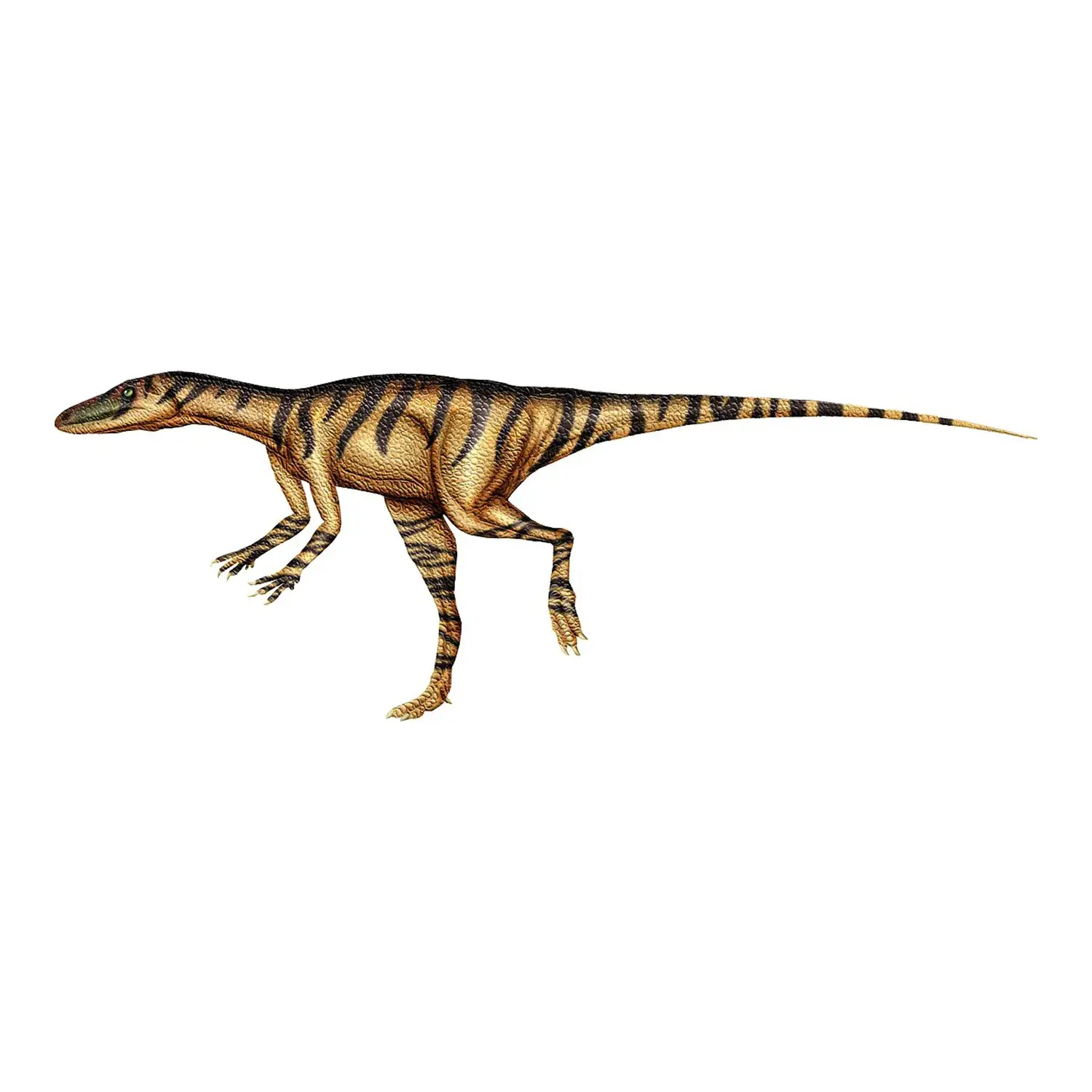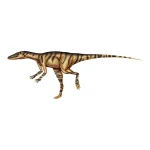Alwalkeria
Name Origin
Eric Walker's
Classification
Diapsida, Saurischia, Theropoda
Habitat (Discovery Location)
India
Period
Late Triassic
Length
Approximately 1 meter
Weight
Approximately 2 kilograms
Diet
Carnivore or Omnivore


Name Origin
Eric Walker's
Classification
Diapsida, Saurischia, Theropoda
Habitat (Discovery Location)
India
Period
Late Triassic
Length
Approximately 1 meter
Weight
Approximately 2 kilograms
Diet
Carnivore or Omnivore
Description
Alwalkeria was a small dinosaur that lived in India during the Late Triassic period.
Its fossil was discovered in 1974, and it was officially named in 1987.
Much about its ecology remains a mystery.
An Omnivorous Dinosaur with Unique Teeth
The most distinctive feature of Alwalkeria was its heterodonty.
While most dinosaurs had teeth of the same shape, Alwalkeria had both straight teeth for eating plants and curved teeth for tearing meat.
This suggests that it was an omnivore, eating both animals and plants.
Scant Fossils and Future Possibilities
The only fossils of Alwalkeria discovered to date are very fragmentary, including the tips of the upper and lower jaws, 28 vertebrae, a femur, and an ankle bone.
Because of this, much about its complete appearance and ecology is still shrouded in mystery.
The well-preserved skull is believed to be from a juvenile. If it were an adult, its height would have only reached a person’s knees.
The scarcity of fossils has also led to debates about its existence and whether it might be the same species as Eoraptor.